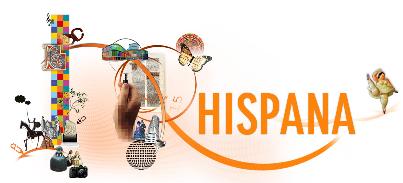Mostrar el registro sencillo del ítem
Helping others use social media: age stereotypes when estimating learner’s success
| dc.contributor.author | Ginsburg, Harvey J. | |
| dc.contributor.author | Cameron, Rebecca | |
| dc.contributor.author | Mendez, Roque V. | |
| dc.contributor.author | Westhoff, Michael | |
| dc.date.accessioned | 2017-05-03T10:41:05Z | |
| dc.date.available | 2017-05-03T10:41:05Z | |
| dc.date.issued | 2016 | |
| dc.identifier.issn | 1989-709X | |
| dc.identifier.uri | http://hdl.handle.net/10835/4741 | |
| dc.description.abstract | Social networking sites (SNS) include online products such as Facebook that allow users to build and maintain large interpersonal Inter net networks. Older adult users have dramatically increased (Duggan & Smith, 2014). This investigation examined how 212 university undergraduate Facebook users estimated success with helping others use Facebook when learner’s age (20, 40, 60 year olds.) and type of acquaintance (friend or kin) was manipulated in hypothetical scenarios. In these scenarios, a person is identified as KW, described as being a college student much like the participant. KW has 20, 40 or 60 year -old acquaintances, a friend or a ki n at each age, all wanting KW’s help learning about social media. This was the only information provided. Qualities and strengths of these interpersonal relationships were not examined. Results from repeated measures 2x3 ANOVA showed a significant main eff ect for age, but no effect for acquaintance type. Results showed no significant interaction. Although the age demographic above 50 years is the fastest growing SNS group, results showed possible age stereotyping among youth when they assist older adults le arning to use SNS. This age effect may be lessened as older adults become more skillful social media users. These findings are limited because of the sample demographics and a lack of identifying qualities of participants’ attributions about the hypothetic al friends or relatives. Future research using multiple items per condition might be able to further elucidate how the type of associations between helper and learner, close or distant, positive or negative, would influence outcomes. | es_ES |
| dc.language.iso | en | es_ES |
| dc.publisher | Universidad de Almería | es_ES |
| dc.rights | Attribution-NonCommercial-NoDerivatives 4.0 Internacional | * |
| dc.rights.uri | http://creativecommons.org/licenses/by-nc-nd/4.0/ | * |
| dc.subject | Older adults | es_ES |
| dc.subject | Ageism | es_ES |
| dc.subject | es_ES | |
| dc.subject | Adultos mayores | es_ES |
| dc.subject | Discriminación por edad | es_ES |
| dc.title | Helping others use social media: age stereotypes when estimating learner’s success | es_ES |
| dc.title.alternative | Ayudando a otros a usar los medios sociales:: Estereotipos de edad al estimar el éxito del alumno | es_ES |
| dc.type | info:eu-repo/semantics/article | es_ES |
| dc.relation.publisherversion | http://www.psye.org/articulos.php?id=199 | es_ES |
| dc.rights.accessRights | info:eu-repo/semantics/openAccess | es_ES |
| dc.identifier.doi | http://dx.doi.org/10.25115/psye.v8i1.456 |










